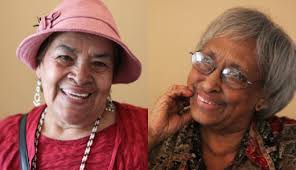When It's Not Just ADHD
Source: www.webmd.com
by Lisa Fields
Date: April 19, 2015
You’ve been told your child has ADHD. But you’re not sure about the diagnosis or if that’s all that’s going on. What should you do?
Let your doctor know, because it’s common for children with the disorder to have another condition at the same time.
"Don't assume everything going on is the ADHD," says Ruth Hughes, PhD, former CEO of the nonprofit group Children and Adults with Attention-Deficit/Hyperactivity Disorder. "This is rarely a disorder that travels alone.”
Tell your doctor about any symptoms that don't seem to fit with ADHD, she says.
If it turns out that your child has a second condition, you can begin to get it treated.
Depression and Anxiety
People with ADHD are diagnosed with anxiety and depression more often than others. There may be genetic reasons for this, or it could be triggered by the impact ADHD symptoms can have on the child.
Anxiety often appears earlier on. Depression tends to develop as children age.
Either condition could cause ADHD-like symptoms, like poor concentration and restlessness. If you're not sure which came first, tell your doctor what you've noticed in your child to help him figure out what's going on.
The symptoms aren’t always clear. Depressed kids and teens often seem irritable rather than sad, says Ben Vitiello, MD, chief of the Child and Adolescent Treatment and Preventive Intervention Research Branch at the National Institute of Mental Health. "The kid is not patient, gets really upset, has no tolerance for frustration.”
If your child is diagnosed with depression or anxiety, your doctor may recommend bringing her to a psychiatrist for antidepressant medication and therapy. Antidepressants won’t help the ADHD directly, but they can be helpful for irritability or moodiness.
Oppositional Defiant Disorder
This is one of the most common conditions linked to ADHD. Children who have it act stubborn, get angry often, throw tantrums, and don't do what parents and teachers tell them to do. The behavior may sometimes be a reaction to frustration.
"They may think, 'If everything I do is wrong, I don't care what you say,' or, 'If my schoolwork is always wrong, why even try?' It becomes much easier not to care what anyone says and do what you want. It also leads to a lot of anger," Hughes says.
"Punishment is not a very effective way to get kids with ADHD to do what they're supposed to do," she says. "If you have ADHD and you are ruled by your impulses, you're not thinking, 'If I do this, I'm going to get into trouble.'"
ADHD medication may help improve symptoms of oppositional defiant disorder, Vitiello says. But "parent training" can also help, especially for parents who rely on punishments. "You'll learn to recognize and nurture your child's strengths," Hughes says.
Learning Disabilities
Classic ADHD symptoms can make it harder for some children to learn. When they're fidgeting, talking, or walking around the classroom, they can't focus on their work. Others have learning disabilities or language disorders that make it even harder for them to keep up at school.
"A child with dyslexia has a hard time reading," Vitiello says. "Therefore, he will be very slow in completing tasks related to written language. He'll be inattentive in class, because he wouldn't be able to follow what the other children are doing."
If your child gets diagnosed with a learning disability, your doctor may recommend a specialist called an educational therapist.
With any condition, you’re your child’s best supporter. See what resources are available. Check with the school to see if it can make classroom accommodations or offer free therapy that can help your child succeed.
top
|



